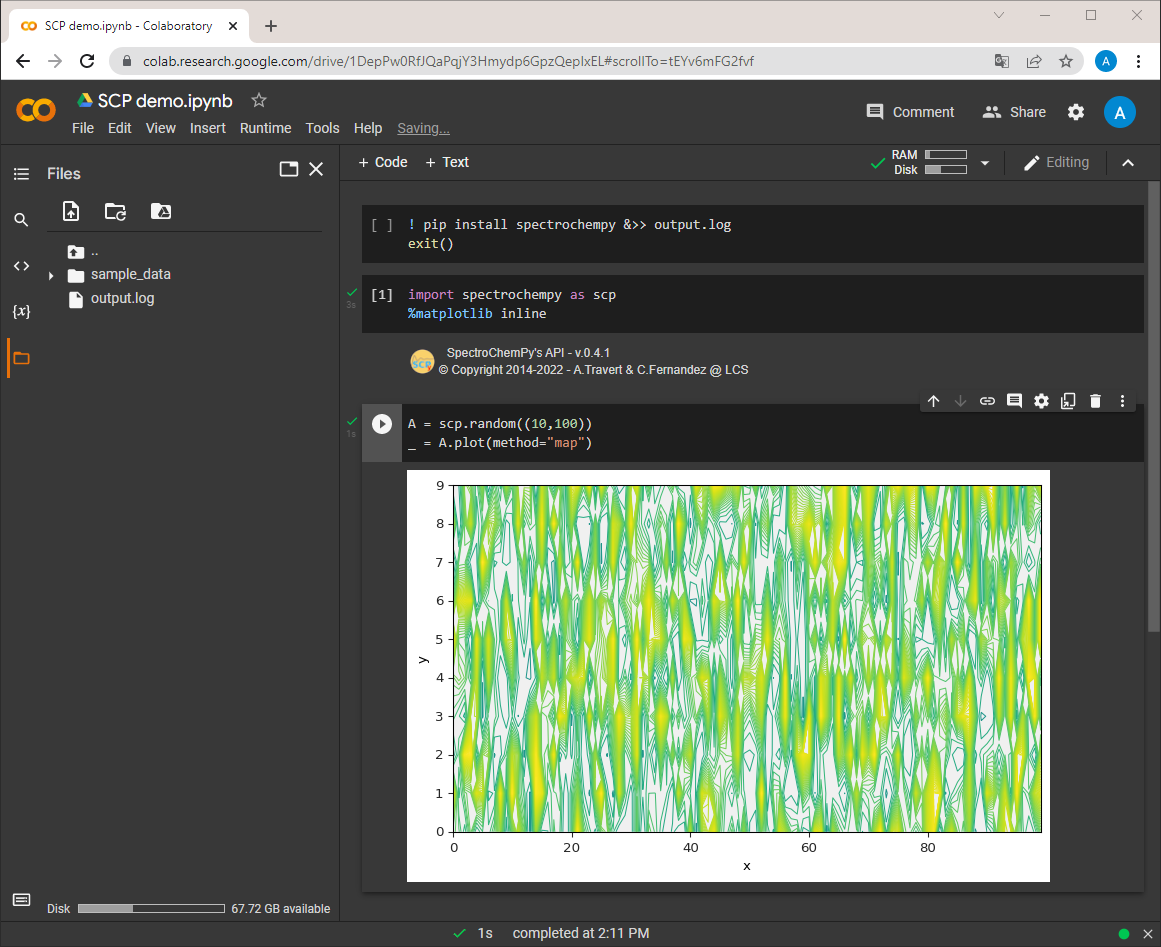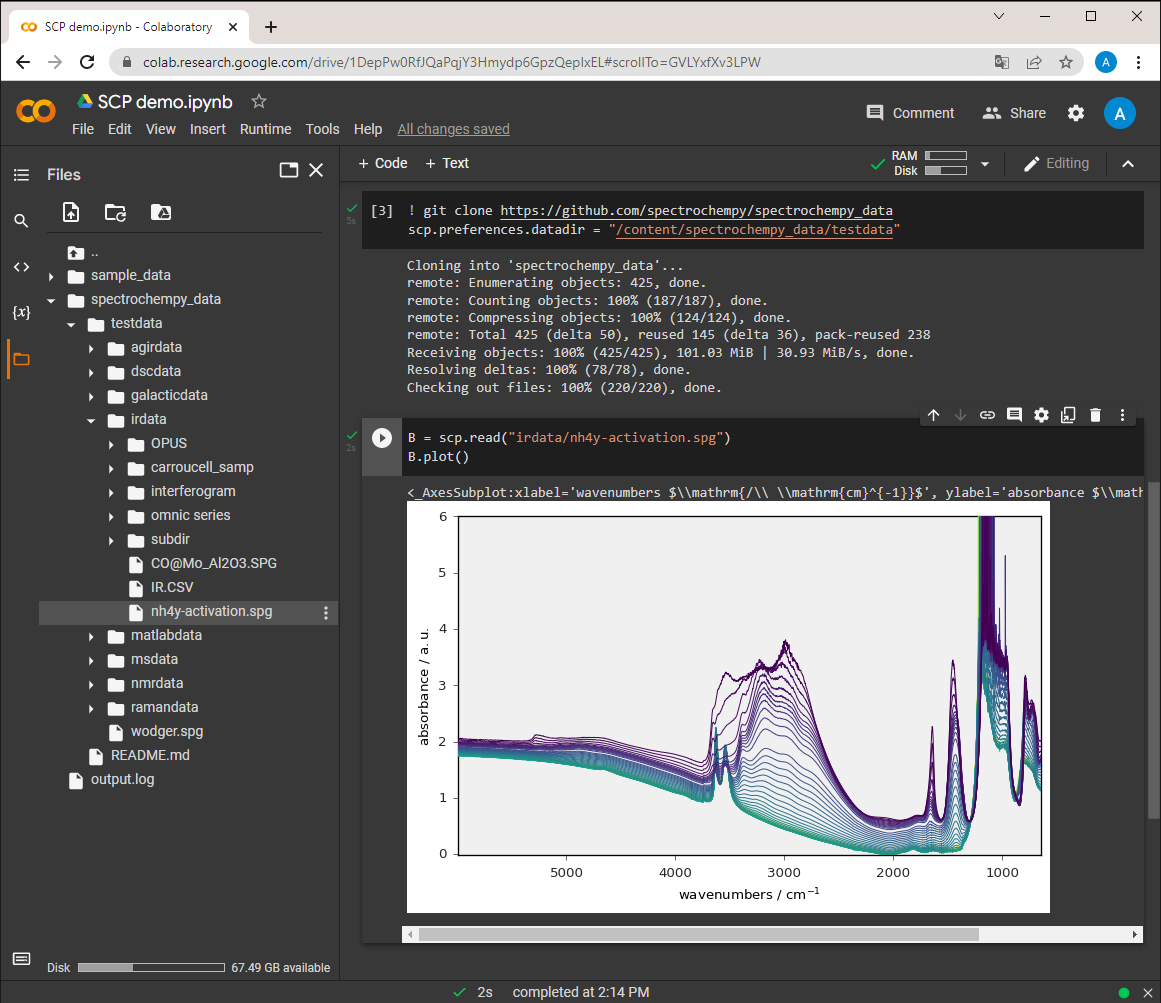Install in Google Colaboratory (Colab)
Introduction
If you want to try or run SpectroChemPy without installing python and all the necessary packages on your computer, an excellent solution is to use a cloud-based service that allows you to run python notebooks in your browser without any installation.
To do this you can use
Colaboratory,
in short Colab. Colab is a free Jupyter notebook environment provided by Google.
Quick Start
To start with Colab, go to the Colab website and create a new notebook.
For learning purpose you can also simply execute the
example notebook on Colab
Installation
On a new Colab notebook, you can install SpectroChemPy by running the following commands in a code cell:
!pip install spectrochempy &>> install.log
!git clone --depth=1 https://github.com/spectrochempy/spectrochempy.git &>> install.log
!pip install ./spectrochempy &>> install.log
!rm -rf spectrochempy
Warning
Colab notebooks are isolated - installation must be repeated for each new notebook session.
Working with Data
Directly loading Example Files
import spectrochempy as scp
dataset = scp.read('irdata/nh4y-activation.spg')
Using File Explorer
Through the file-explorer pane located on the left-hand side of the Colab window (NOT the File menu which is devoted to notebooks and scripts management !).
Equivalently by importing the files module from the
google.colab` library and running the files.upload() widget (works best on Google Chrome).
from google.colab import files
files.upload()
Using Google Drive
By connecting the notebook to your Google Drive (this of course requires that your local files are synchronized with Google drive), using the file-explorer pane.
from google.colab import drive
drive.mount('/content/drive')
Using Git Repository
By cloning a git repository using git clone .
!git clone https://example.com/path/to/my-project.git
scp.preferences.datadir = "/content/my-project"
Note
Colab has no direct access to your local drive. Choose the most appropriate method above for your data access needs.
Then as usual in Jupyter Notebook you can start using SpectroChemPy by inserting adding new code cells:

